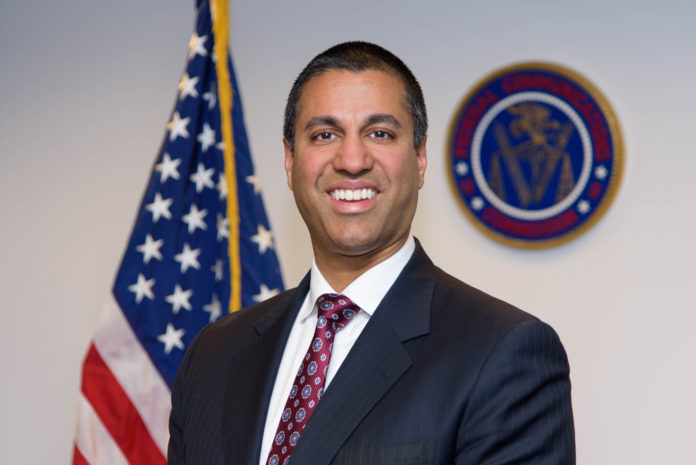On Nov. 7, the FCC adopted a Memorandum Opinion and Order — not released until Dec. 3 — that denied a Freedom Of Information Act request from BuzzFeed‘s data editor and the political correspondent on the National Desk of The New York Times.
The journalists, Jeremy Singer-Vine and Nicholas Confessore, challenged the application of exemptions to the Freedom of Information Act in an attempt to obtain portions of the Commission’s server logs for the ECFS related to Docket No. 17-108.
That would be the infamous “Restoring Internet Freedom” docket, in which the public was invited to comment on the removal of Title II protections to broadband services, which detractors have called the end of “net neutrality.” The docket was initiated on the belief that the FCC under previous Chairman Tom Wheeler improperly placed Title II protections on broadband, thus limiting the free-market growth opportunities for the tech sector — one that had never “throttled” or put limits on consumer access, one threat many believe the cessation of “net neutrality” could bring.
The FCC’s denial of the FOIA request came right after a U.S. District Court in Washington ruled, in Prechtel v. FCC, that “essentially the same server logs were exempt from disclosure under the FOIA.” This set in motion the Commissioners’ split 3-1 decision, on party lines, that concludes staff in the office of the Chief Information Officer properly withheld this information.
The New York Times and BuzzFeed News filed the FOIA to gain internal information about fake comments filed in the ECFS; the FCC, in its defense, claims releasing the server logs could make the U.S. government open to a possible cyber attack.
Yet, that may not be the big takeaway from the Dec. 3 release of the Order.
As first reported by The Hill, a Capitol Hill political news organization, a statement from FCC Chairman Ajit Pai accompanying the Order appears to acknowledge Russia-based meddling in the “net neutrality” public comments tied to the Restoring Internet Freedom Docket.
Pai’s statement largely takes Democratic Commissioner Jessica Rosenworcel for saying “nothing” in response to efforts taken to publish FCC meeting items before the Commission held a vote, and for not commenting when Pai dissented when the FCC “withheld documents created by a private law firm on behalf of a private client from disclosure under the Freedom of Information Act (FOIA) exemption for ‘intra-agency’ documents.”
Pai’s two-page criticism of Rosenworcel’s alleged silence on other issues, including how the FCC “rammed through utility-style Internet regulation under White House pressure” in 2015, features the following missive:
My dissenting colleague says—a lot. But nothing about the U.S. Supreme Court precedent.
Nothing about the on-point district court decision. Nothing about why our career information technology staff’s determination that releasing these server logs could undermine our agency’s efforts to defend against cyberattacks is wrong. Indeed, nothing whatsoever about any of the actual analysis the FCC or its career staff have proffered.
Instead, one finds the now-standard overheated rhetoric about “net neutrality” (omitting, as usual, the fact that the half-million comments submitted from Russian e-mail addresses and the nearly eight million comments filed by e-mail addresses from e-mail domains associated with FakeMailGenerator.com supported her position on the issue!).
It is Pai’s admission of “fact” of Russian intervention in the public comment process, ahead of the removal of Title II classification for broadband, that The Hill seized on.
Pai did not elaborate. However, Rosenworcel released her own statement. In it, she offered a blistering dissent as the lone Democrat on the Commission.
“What is the Federal Communications Commission hiding?,” she asked. “Last year, when the agency made the misguided decision to roll back its net neutrality rules, it did so based on a public record littered with problems. While millions of Americans sought to inform the FCC process by filing comments and sharing their deeply-held opinions about internet openness, millions of other filings in the net neutrality docket appear to be the product of fraud. As many as nine and a half million people had their identities stolen and used to file fake comments, which is a crime under both federal and state laws. Nearly eight million comments were filed from e-mail domains associated with FakeMailGenerator.com. On top of this, roughly half a million comments were filed from Russian e-mail addresses. Something here is rotten—and it’s time for the FCC to come clean.”





